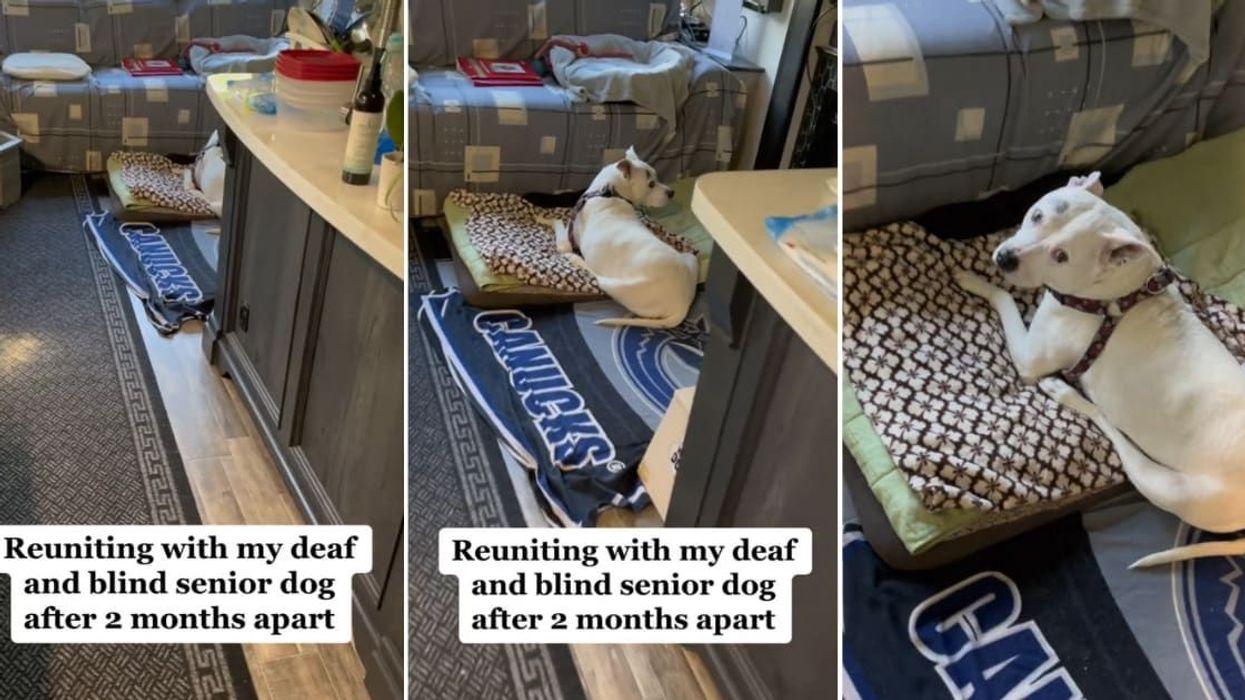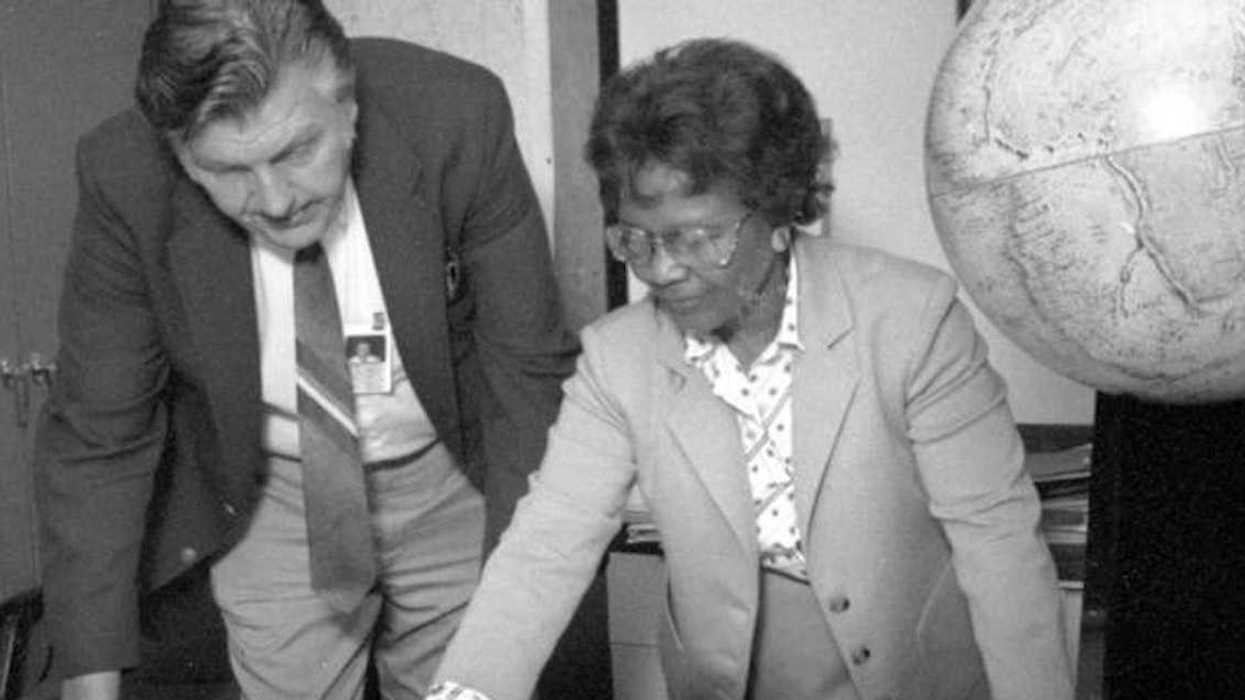Dogs are really pure creatures. They display a sense of affection and love that most humans cannot compare to. But sometimes, life gets hard for some dogs when they are deprived of their sight or sound. However, dogs, being the wholesome animals that they are become extra special even in such scenarios. Rachel (@rachelhmarie) recently shared a post where she was reunited with her old deaf and blind dog, Halo.

The short clip has gone viral, getting over 4.5 million views on the social media site. The owner happened to be away from the adorable dog for two very long months and finally got to see her again. In the video, we see the individual approaching the dog and showing them their palm. The dog does not recognize them for a while until it manages to get a few sniffs and realizes that she has been reunited with her owner. In another video's caption, Rachel clarified that Halo was fully deaf and only 80% blind, which meant that she could see a person's shadow and smell them.



She begins to send out small screams of happiness while wagging her tail eagerly as the owner sits down to spend some quality time with her. People on the site loved the video and shared their thoughts in the comments section. @pot_h3ad commented, "All I could think is she could feel someone coming and didn't know who or what it was until he actually smelt you. Do not leave again." @lolambiee said, "Dogs barking like that MELTS my heart. That baby missed you."
A few years back, April Licata lost her dog, Piper, when she opened the front door to let her dog go outside. When she checked after some time, she was shocked to discover that Piper had disappeared. The Licata family searched extensively until they received a call from the local animal shelter, informing them that an anonymous individual had found Piper and brought her to the shelter. The reunion between the dog and April's son, Carter, will probably leave you with moist eyes.
Upon the adorable dog's initial disappearance, April made a post on Facebook, saying, "Last night the love of Carter's life ran away, his pug Piper, or she was picked up. I got distracted with the boys and when I went to let her and Jake [the other dog] in, only Jake was there. #SeriousMomGuilt. She's a two-year-old pug that's very sweet but may think you're playing a game with her if you try and catch her. Can you please share and help us bring her home?"
Even though many people on the site offered words of support, there was no news of anybody having seen the dog. This was when they received a call from the local animal shelter, Genesee Country, informing them that a pug matching Piper's description had been dropped off there. April said in an interview, "My husband and I were going out to dinner and honestly, there was an outcry of joy in the truck. We were shocked and elated!"
Carter was out of town and didn't know that his precious canine companion had been found. So, the parents decided to keep it a surprise for him when he came back. April uploaded a video of the heartwarming meeting. In the video, Piper and April are in their car. The pug eagerly looks out the window as Carter comes to the car. While he is initially shocked, he opens the door, hugs his dog and tears of joy begin to flow. April stated that the entire incident was a "Christmas miracle."



















 What foods would you pick without diet culture telling you what to do?
What foods would you pick without diet culture telling you what to do?  Flexibility can help you adapt to – and enjoy – different food situations.
Flexibility can help you adapt to – and enjoy – different food situations.
 Revenge can feel easier than forgiveness, which often brings sadness or anxiety.
Revenge can feel easier than forgiveness, which often brings sadness or anxiety. 
 In the past two years, two malaria vaccines have become available for babies starting at 5 months of age.
In the past two years, two malaria vaccines have become available for babies starting at 5 months of age. By exploiting vulnerabilities in the malaria parasite’s defense system, researchers hope to develop a treatment that blocks the parasite from entering cells.
By exploiting vulnerabilities in the malaria parasite’s defense system, researchers hope to develop a treatment that blocks the parasite from entering cells. Created with
Created with 

 Volunteers who drive homeless people to shelters talk with a person from Ukraine in Berlin on Jan. 7, 2026.
Volunteers who drive homeless people to shelters talk with a person from Ukraine in Berlin on Jan. 7, 2026.
 Tasks that stretch your brain just beyond its comfort zone, such as knitting and crocheting, can improve cognitive abilities over your lifespan – and doing them in a group setting brings an additional bonus for overall health.
Tasks that stretch your brain just beyond its comfort zone, such as knitting and crocheting, can improve cognitive abilities over your lifespan – and doing them in a group setting brings an additional bonus for overall health. Overdoing any task, whether it be weight training or sitting at the computer for too long, can overtax the muscles as well as the brain.
Overdoing any task, whether it be weight training or sitting at the computer for too long, can overtax the muscles as well as the brain.